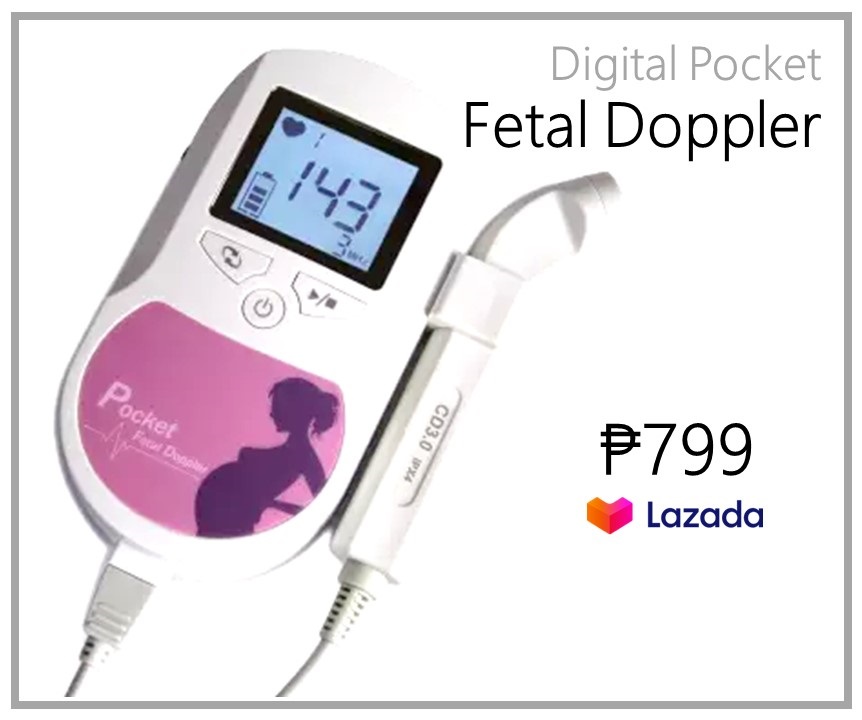Table of Contents
ToggleThe debate over formula milk in the Philippines is a topic that sparks passionate discussions among parents, healthcare professionals, and policymakers alike. With the convenience it offers and its availability in various formulations, formula milk has become a popular choice for many Filipino families. However, behind its widespread usage lie a multitude of pros and cons that deserve closer examination. From concerns regarding nutritional adequacy to the impact on breastfeeding rates and cultural norms surrounding infant feeding practices, delving into the complexities of formula milk usage in the Philippines unveils a nuanced landscape with both benefits and drawbacks. Join us as we explore 6 key pros and cons of formula milk in this diverse Southeast Asian nation, shedding light on an issue that touches upon health, culture, and societal norms.
The Price Range of Formula Milk in the Philippines: How Much?
When it comes to the price range of formula milk in the Philippines, there is a wide variety of options available to suit different budgets. On average, a standard can of formula milk can cost anywhere from 500 to 2,500 Philippine pesos, depending on the brand and specific variant. Premium brands may cost even more, while some budget-friendly options are also accessible for parents looking to save money without compromising on quality.
While formula milk prices in the Philippines may seem relatively high compared to some other countries, it’s essential for consumers to consider factors beyond just cost. The nutritional value, ingredients used, and reputation of the brand all play a significant role in determining if the price is justified. In a market where affordability is key for many families, striking a balance between quality and budget constraints becomes crucial when choosing formula milk for infants.

Where Can You Buy Formula Milk in the Philippines? Online and Retail Stores
If you’re looking to purchase formula milk in the Philippines, you have plenty of options both online and in retail stores. Online platforms like Lazada, Shopee, and even dedicated baby care websites offer a wide variety of formula milk brands to choose from. These online stores often provide convenient delivery options, allowing busy parents to easily stock up on their preferred formula without leaving home.
On the other hand, if you prefer shopping in physical stores, major supermarkets like SM Supermarket or Robinsons Supermarket usually carry a range of formula milk brands catering to different needs. Specialty baby shops such as Baby Company also offer personalized recommendations and advice for selecting the right formula for your child. Whether you opt for online convenience or enjoy browsing through shelves in-store, finding formula milk in the Philippines is relatively easy with the numerous retail options available.

What are the Pros and Cons of Formula Milk in the Philippines? Introduction
Pros and cons of formula milk in the Philippines have been a topic of much debate, with several key points to consider. On the positive side, formula milk offers convenience for mothers who are unable to breastfeed for various reasons, providing a reliable alternative for infant nutrition. Additionally, formula milk can be fortified with essential nutrients such as iron and vitamin D, ensuring that babies receive adequate nutrition for their growth and development.
However, one major drawback of formula milk is its cost compared to breastfeeding, making it a less accessible option, especially for low-income families in the Philippines. Furthermore, there is a concern regarding the quality and safety of some formula milk products in the market, with reports of counterfeit or substandard products circulating. It is crucial for parents to carefully evaluate these factors when deciding whether to opt for formula milk as an alternative to breastfeeding.
Exploring the Benefits of Formula Milk in the Philippines
1. Formula Milk in the Philippines is Convenient: Easy preparation and storage options
Formula milk in the Philippines offers unparalleled convenience for busy parents. One of its key advantages is the ease of preparation, where all that’s required is mixing the formula with clean water according to the instructions on the package. This simplicity reduces time and effort compared to breastfeeding, allowing both mothers and fathers to handle feeding responsibilities more evenly.
Moreover, formula milk provides various storage options, making it ideal for on-the-go families. Ready-to-feed formula bottles eliminate any need for preparation altogether, perfect for outings or late-night feedings. Additionally, powdered formula can be easily stored in a designated container, ensuring accessibility whenever needed without compromising freshness or quality. The flexibility these storage options offer makes formula milk an attractive choice for modern families leading fast-paced lifestyles.

2. Formula Milk in the Philippines is Nutritious: Formulated with essential nutrients for growth
Formula milk in the Philippines is a valuable resource for infants who are unable to be breastfed, as it is formulated with essential nutrients needed for healthy growth and development. With a carefully balanced combination of proteins, fats, carbohydrates, vitamins, and minerals, formula milk provides a convenient and reliable alternative to breast milk. This ensures that infants receive the necessary nourishment even when breastfeeding is not possible.
Moreover, many formula milk brands in the Philippines enrich their products with additional nutrients such as iron, calcium, and omega-3 fatty acids to support optimal brain development and overall health. These fortified formulas help bridge any nutrient gaps that may be present in a baby’s diet and contribute to their well-being. Overall, while breast milk is still considered the gold standard for infant nutrition, formula milk in the Philippines offers a nutritious option that can complement or substitute breastfeeding when needed.

3. Formula Milk in the Philippines is Flexible: Allows for feeding by multiple caregivers
One significant advantage of formula milk in the Philippines is its flexibility, particularly in a caregiving setup where multiple individuals may be responsible for feeding the baby. Unlike breastfeeding, formula feeding allows for seamless coordination among different caregivers, ensuring that the infant receives proper nutrition even when their primary caregiver is unavailable. This versatility is especially beneficial in households where parents share childcare responsibilities or in cases where grandparents or other family members play a significant role in caring for the baby.
Moreover, the convenience factor of formula milk cannot be understated when it comes to accommodating different schedules and routines. In busy households or families with working parents, the ability to share feeding duties among caregivers can help distribute parental responsibilities more evenly while still ensuring the baby’s nutritional needs are being met consistently. This adaptable nature of formula milk provides practical solutions for modern families facing various caregiving challenges and promotes inclusivity among all those involved in nurturing the child.

4. Formula Milk in the Philippines is Allergy-Friendly: Suitable for infants with dietary sensitivities
One of the standout advantages of formula milk in the Philippines is its allergy-friendly nature, making it a suitable choice for infants with dietary sensitivities. For parents who are concerned about potential allergic reactions or sensitivities in their babies, opting for formula milk can provide peace of mind. The availability of specialized formulas that cater to specific allergies, such as lactose intolerance or cow’s milk protein sensitivity, further enhances the accessibility of allergy-friendly options in the market.
Moreover, formula milk manufacturers in the Philippines prioritize research and development to create products that are gentle on sensitive stomachs while still providing essential nutrients for growing babies. This dedication to innovation ensures that infants with dietary restrictions can still receive adequate nourishment through formula feeding. By offering a variety of hypoallergenic formulas, the Philippine market caters to a diverse range of dietary needs and helps parents find suitable options for their little ones.

5. Consistency of Formula Milk in the Philippines: Ensures uniform nutrient intake
The consistency of formula milk in the Philippines plays a crucial role in ensuring uniform nutrient intake for infants. This standardized formulation guarantees that each serving provides the necessary nutrients in the correct proportions, offering peace of mind to parents about their child’s dietary needs being met consistently. By adhering to strict regulations on composition and quality, formula milk manufacturers contribute to maintaining the nutritional adequacy required for healthy infant development.
Moreover, the consistency of formula milk simplifies monitoring a baby’s nutrient intake, as parents can accurately measure and control the quantity consumed. This precision allows caregivers to track their child’s growth more effectively and address any nutrition-related concerns promptly. The standardized nature of formula milk also facilitates healthcare professionals in providing tailored guidance on feeding practices based on known nutritional content, promoting optimal health outcomes for infants across different households.

6. Formula Milk in the Philippines Provides Peace of Mind: Assurance in meeting baby’s nutritional needs
Formula milk in the Philippines offers parents peace of mind by providing assurance that their baby’s nutritional needs are being met. In a fast-paced world where time constraints and other factors can affect breastfeeding, formula milk serves as a reliable alternative to ensure proper nourishment for infants. Many mothers find comfort in knowing that formula milk contains essential nutrients necessary for their baby’s growth and development.
The convenience of formula milk cannot be overstated, especially for working parents or those with busy schedules. With pre-measured portions and the ability to feed babies on demand, formula milk provides flexibility and ease in feeding routines. This sense of predictability gives parents confidence that their child is receiving adequate nutrition even when faced with challenges like low breast milk supply or other health concerns.

Exploring the Disadvantages of Formula Milk in the Philippines:
1. Formula Milk in the Philippines May Lack of Antibodies
In recent years, a growing concern has emerged regarding formula milk in the Philippines potentially lacking essential antibodies crucial for infant immune development. Unlike breast milk, which contains a unique blend of antibodies tailored to an individual baby’s needs, formula milk may fall short in providing this crucial protection. Studies suggest that babies exclusively fed formula may miss out on the passive immunity passed through breast milk, leaving them more vulnerable to infections and illnesses.
The absence of these vital antibodies in formula milk highlights a significant drawback when considering the overall health benefits for infants. While formula provides essential nutrients required for growth and development, the lack of specific antibodies found in breast milk represents a potential limitation. As parents weigh their choices between breastfeeding and using formula, understanding this aspect becomes paramount in making informed decisions for their child’s health and well-being.

2. Some Digestion Issues of Formula Milk in the Philippines
When it comes to formula milk in the Philippines, one common concern is related to digestion issues that some babies may experience. While formula milk is designed to mimic the composition of breast milk, the ingredients and processing methods used can sometimes lead to digestive discomfort for infants. This can manifest in symptoms such as gas, bloating, constipation, or diarrhea.
Furthermore, formula milk intolerance is another troubling issue observed among some infants in the Philippines. Some babies may have difficulties digesting certain components of formula milk, leading to allergic reactions or sensitivities. Undiagnosed allergies and intolerances can cause significant distress for both the infant and parents, requiring careful monitoring and potentially switching to alternative formulas that are better tolerated by the baby’s digestive system.
In light of these challenges with digestion issues surrounding formula milk in the Philippines, it becomes essential for parents to consult with healthcare providers if they notice persistent symptoms in their infants. Proper evaluation and guidance can help address potential underlying causes and determine suitable solutions to ensure optimal nutrition and comfort for the baby’s delicate digestive system.

3. Health Risks of Formula Milk in the Philippines
One concerning aspect of formula milk in the Philippines is the health risks associated with its consumption. Due to the lack of proper regulation and quality control, there have been instances where formula milk products have been found to contain harmful bacteria or contaminants, posing a serious threat to infants’ health. Additionally, formula milk often lacks essential nutrients found in breast milk, leading to potential deficiencies and long-term health consequences for babies.
Moreover, the practice of bottle-feeding with formula milk has been linked to a higher risk of infections and illnesses among infants compared to breastfeeding. This increased susceptibility can be attributed to factors such as inadequate sterilization of bottles or improper preparation of formula, further highlighting the potential dangers associated with relying solely on formula milk for infant nutrition in the Philippines. These health risks emphasize the importance of promoting and supporting breastfeeding as the optimal choice for infant feeding whenever possible.

4. Cost Implications of Formula Milk in the Philippines
One often overlooked aspect of formula milk in the Philippines is its cost implications. For many families, especially those on a tight budget, purchasing formula milk can be a significant financial burden. The high cost of formula milk compared to breastfeeding can strain the household budget and limit other essential expenses.
Additionally, the cost of formula milk is not just limited to the purchase price but also includes related expenses such as bottles, sterilizing equipment, and feeding accessories. These added costs can quickly add up, making formula feeding even more financially taxing for Filipino families. It’s crucial to consider these financial implications when deciding between breastfeeding and formula feeding to ensure that families make a decision that aligns with their overall budget and financial goals.

5. Environmental Impact of Formula Milk in the Philippines
The environmental impact of formula milk in the Philippines is a pressing issue that often goes overlooked in discussions around infant nutrition. The production and distribution of formula milk contribute significantly to carbon emissions, water pollution, and waste generation. This is particularly concerning in a country like the Philippines, where sustainable resources are already strained due to rapid urbanization and industrial growth.
Moreover, the packaging used for formula milk products adds to the plastic waste crisis in the country, with many containers ending up in landfills or clogging waterways. The extraction of raw materials for formula milk production also puts a strain on natural resources such as water and land, impacting local ecosystems and biodiversity. As consumers become more conscious of their environmental footprint, it’s essential to consider these environmental implications when choosing between breastmilk and formula for infant feeding.

6. Nutrient Differences of Formula Milk in the Philippines
One significant aspect to consider when choosing formula milk in the Philippines is the variance in nutrient composition among different brands. Each brand offers a unique blend of essential nutrients, vitamins, and minerals tailored to meet specific needs. For example, some formulas may be fortified with additional levels of certain nutrients, like DHA and iron, which are crucial for brain development and overall growth in infants.
Moreover, understanding these nutrient differences can help parents select the most suitable formula milk for their child’s individual requirements. By comparing labels and consulting with pediatricians, caregivers can make informed decisions based on the specific nutritional needs of their newborns or toddlers. It’s essential to prioritize sourcing high-quality formula milk that provides a well-rounded spectrum of nutrients crucial for healthy development during these formative years.

How to Choose the Right Formula Milk in the Philippines
When choosing the best formula milk for babies, consider your baby’s specific needs. Opt for a formula that matches their age group and any special dietary requirements they may have. Look for reputable brands that adhere to strict quality control standards, ensuring the safety and nutritional value of the product. It’s important to consult with your pediatrician before making a decision, as they can provide valuable guidance based on your baby’s health status and developmental stage.
Furthermore, take into account your budget constraints without compromising on quality. Some premium formulas may offer additional benefits but come at a higher price point. Balance cost-effectiveness with the nutritional content and suitability for your baby. Lastly, read reviews and testimonials from other parents to gain insights into their experiences with different formula milk brands in the market. Personal recommendations can often help you narrow down your choices and make an informed decision tailored to your baby’s needs.

Conclusion: Final Thoughts on Formula Milk in the Philippines
In conclusion, the debate surrounding formula milk in the Philippines is a complex and nuanced issue that requires careful consideration. While formula milk offers convenience and ease of use, especially for working parents or those with breastfeeding difficulties, the potential health risks and ethical concerns cannot be overlooked. It is crucial for both healthcare professionals and parents to be well-informed about the advantages and drawbacks of formula milk in order to make informed decisions that prioritize the long-term health and well-being of infants.
Moreover, the accessibility and affordability of formula milk must also be taken into account when discussing its impact in the Philippines. The marketing tactics employed by formula milk companies play a significant role in influencing parental choices, often leading to misconceptions or unrealistic expectations. As such, there needs to be greater transparency and regulation within the industry to ensure that parents are provided with accurate information about formula milk’s benefits without being misled by deceptive marketing strategies. Ultimately, fostering a culture that empowers parents to make informed choices based on scientific evidence and individual circumstances is essential for promoting infant health in the Philippines.














